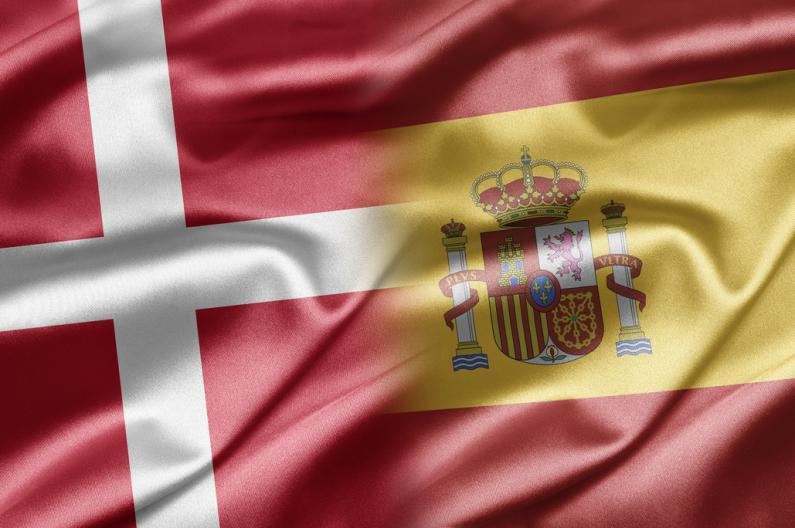
There are more than 2,500 kilometres separating the two countries and the cultural differences in language, customs, and food etc., between Spain and Denmark – with their respective Mediterranean and Nordic characters – could not be more different.
Spaniards always eat lunch and dinner late
When we compare Spanish customs with the rest of Europe, we see that in the Iberian Peninsula they always eat lunch and dinner later than anyone else.
While in Denmark it is customary to eat lunch at 12 o'clock, in Spain no one sits at the table to eat before two o’clock or even three o’clock in the afternoon.
The same goes for dinner: the Danes have dinner and go to bed early, while the Spaniards prefer to eat later and go to bed around 11 or 12 o'clock.
The Danish working day ends before the Spanish working day
If the Danes eat dinner early, they also leave work early. In Denmark, the working day usually ends at four o'clock in the afternoon and there is often only a half-hour lunch break.
In Spain, where they take one or two hours for lunch, nobody leaves work before six o'clock in the evening. So the working day is much longer and workers get home later.
Working overtime at work is perceived differently
And speaking of cultural differences at work, in Denmark it is often frowned upon for employees to work overtime. It is a sign that they are not able to meet their obligations during the working day.
In Spain, on the other hand, it is customary for employees to stay a little longer in the office and, in many areas, it is even considered that this is a sign that an employee is professional and committed to the company.
In Denmark it is frowned upon to talk about money
Danes don't like to talk about personal finances. It is a topic that is only discussed with close friends or family, and even then it is rare.
In Spain, on the other hand, people openly share aspects of their family finances. It could be said that there are few taboo subjects in Spain.
Fines for littering
The Danes take the cleanliness of their cities very seriously, and they issue fines to those who throw paper on the ground. That's why the streets are always clean.
Some cities in Spain also impose fines for littering, but this does not stop many people from throwing paper, cigarette butts or other litter on the ground.
Danish and Spanish schools have nothing in common
In Spain schools are usually closed buildings to discourage pupils from going out or indeed, people from outside the school from entering. Danish schools however, have open buildings with green areas so that children can spend time outdoors.
Education is also somewhat different. Danish children do not start their education until the age of six. In Spain, on the other hand, children start going to school at the age of three and gradually learn to count, read, etc.
The characters of the Spanish and Danish are also very different
The Danes are generally cautious, polite, friendly and reserved people.
The Spanish, on the other hand, are more open, noisy and extroverted. They like to go out to bars, get together with friends and take advantage of any excuse to celebrate.
The winter temperatures are not as low in Spain as in Denmark.
In some parts of Spain, in winter, it is common to see temperatures of around 15 degrees Celsius, with beautiful sunny days. In Denmark, on the other hand, temperatures are much lower and the Danes are used to living in cold temperatures for months at a time.
Greeting each other
Spaniards usually greet each other with two kisses. For the Danes, however, this is a gesture reserved only for family or very close friends. It is customary for the Danes to greet each other with a handshake.
and receive an answer within a few hours
- Choose the service you require
- Get a quote
- Confirm and receive your order
Questions on cultural differences between Spain and Denmark
What is the biggest cultural difference between Spain and Denmark?
The main cultural differences between Spain and Denmark lie in their daily routines. As we have said, Spaniards work later, which means that they spend a lot of time in the office. In addition, they usually take the opportunity to have a drink after work and consequently go to bed late. The Danes, on the other hand, spend more time with their families, and spend more time playing sports. Social activities are usually reserved for the weekends.
How many Danes live in Spain?
There are about 9,300 Danes living in Spain, of whom about 3,000 were born in Spain.
How many Spaniards live in Denmark?
The INE (National Statistics Institute in Spain) estimates that there are about 6,300 Spaniards living in Denmark.
Add new comment